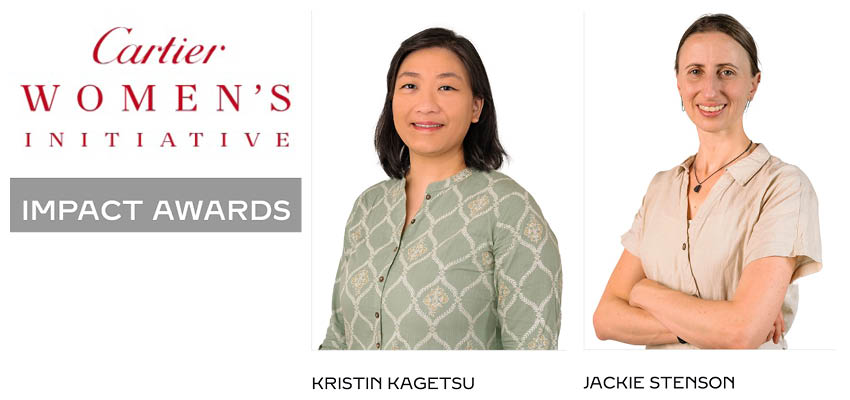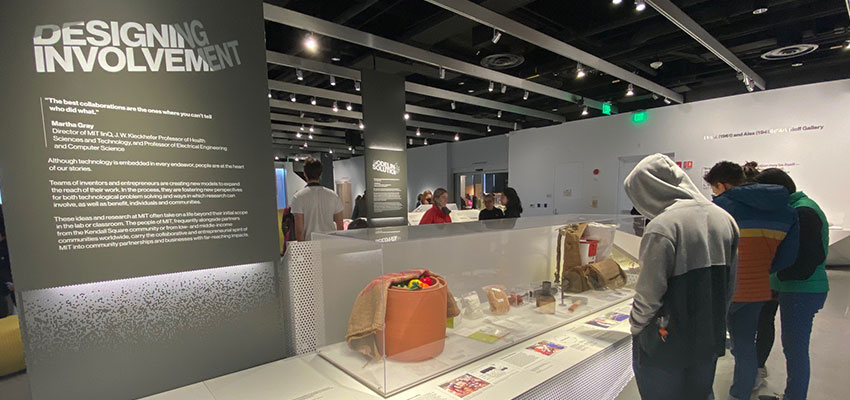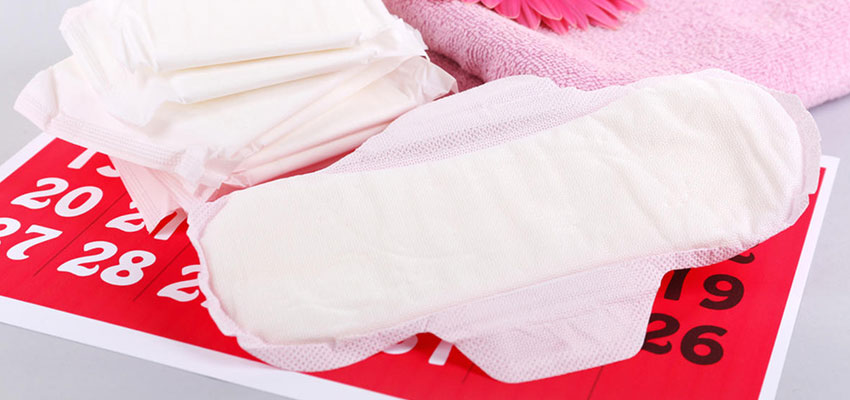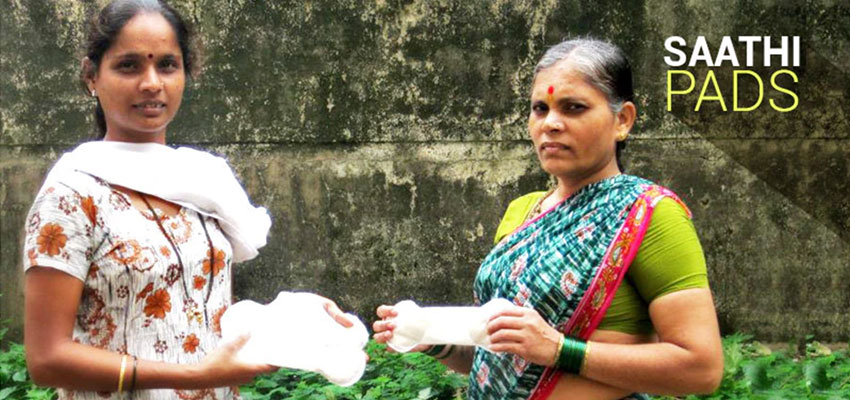
2015 Scale-Ups Fellow
Co-founder & CEO, Saathi Pads
The first 100% eco-friendly sanitary pad made from waste banana tree fiber locally sourced for urban and rural India.
Website: Saathi Pads
Pilot Market: India
Meet Scale-Ups Fellow, Kristin Kagetsu
Kristin holds a SB in Mechanical Engineering from MIT. Since high school, has been passionate about empowering girls and women to make a difference and to take an interest in science and engineering. At Saathi she is able to combine these two passions by enabling women to become entrepreneurs and learn about sustainable products. Prior to co-founding Saathi, where she serves as chief executive officer, Kristin worked as a Hardware Engineer designing data servers large tech company in the US. Prior to that, she spent a year working with a local community in Uttarakhand, India to develop natural dye crayons from waste materials as an extension of a project from an MIT D-Lab fieldwork trip to India.
The issue: 200 million women living in rural India without access to affordable sanitary protection.
A silent malady is crippling over 200 million women living in rural India. These women, aged between 12 and 47, are precluded from freely engaging in and contributing to their communities simply because they lack access to affordable sanitary protection. The implications are real – every year, many of these rural girls and women miss up to 50 days of work or school. Many school age girls either fall behind or drop out of school entirely. Along with economic challenges, cultural stigmas prevent many women from easily accessing safe sanitary protection, especially in the most rural Indian communities. More alarmingly, many of these women resort to using less hygienic alternatives such as rags to meet their need for sanitary protection, risking infection. Rudimentary forms of sanitary protection can lead to serious infections. This problem is not limited to India but is global problem that affects women in many parts of the world.
The three main barries to rural women using pads are:
Affordability: Current sanitary pads in the market are not affordable.
Availabilty: Multinations do not have viable distribution channels in rural parts of the world.
Awareness: Many rural women are uneducated about the benefits of proper feminine hygiene practices
A silent malady is crippling over 200 million women living in rural India. These women, aged between 12 and 47, are precluded from freely engaging in and contributing to their communities simply because they lack access to affordable sanitary protection. The implications are real – every year, many of these rural girls and women miss up to 50 days of work or school. Many school age girls either fall behind or drop out of school entirely. Along with economic challenges, cultural stigmas prevent many women from easily accessing safe sanitary protection, especially in the most rural Indian communities. More alarmingly, many of these women resort to using less hygienic alternatives such as rags to meet their need for sanitary protection, risking infection. Rudimentary forms of sanitary protection can lead to serious infections. This problem is not limited to India but is global problem that affects women in many parts of the world.
The three main barries to rural women using pads are:
- Affordability: Current sanitary pads in the market are not affordable.
- Availabilty: Multinations do not have viable distribution channels in rural parts of the world.
- Awareness: Many rural women are uneducated about the benefits of proper feminine hygiene practices.
The solution: A small-scale manufacturing process to produce affordable sanitary protection from waste banana tree fiber
In order to address this pressing healthcare issue, Saathi has developed a small scale manufacturing process to produce affordable sanitary protection from waste banana tree fiber.
These pads will be manufactured and sold by local women. Saathi works with rural women to sell the pads door-to-door, in order to provide customers with in-person health education opportunities.
Saathi's major innovation lies in the development of its small scale, modular manufacturing solution. The Saathi machine, which is actually an integrated chain of individual modules working together, takes inputs of the absorbent fiber pulp, spun-bonded polypropylene and hygienic-grade polyethylene and outputs a folded, sterilized sanitary pad complete with wings and adhesives for undergarment attachments.








